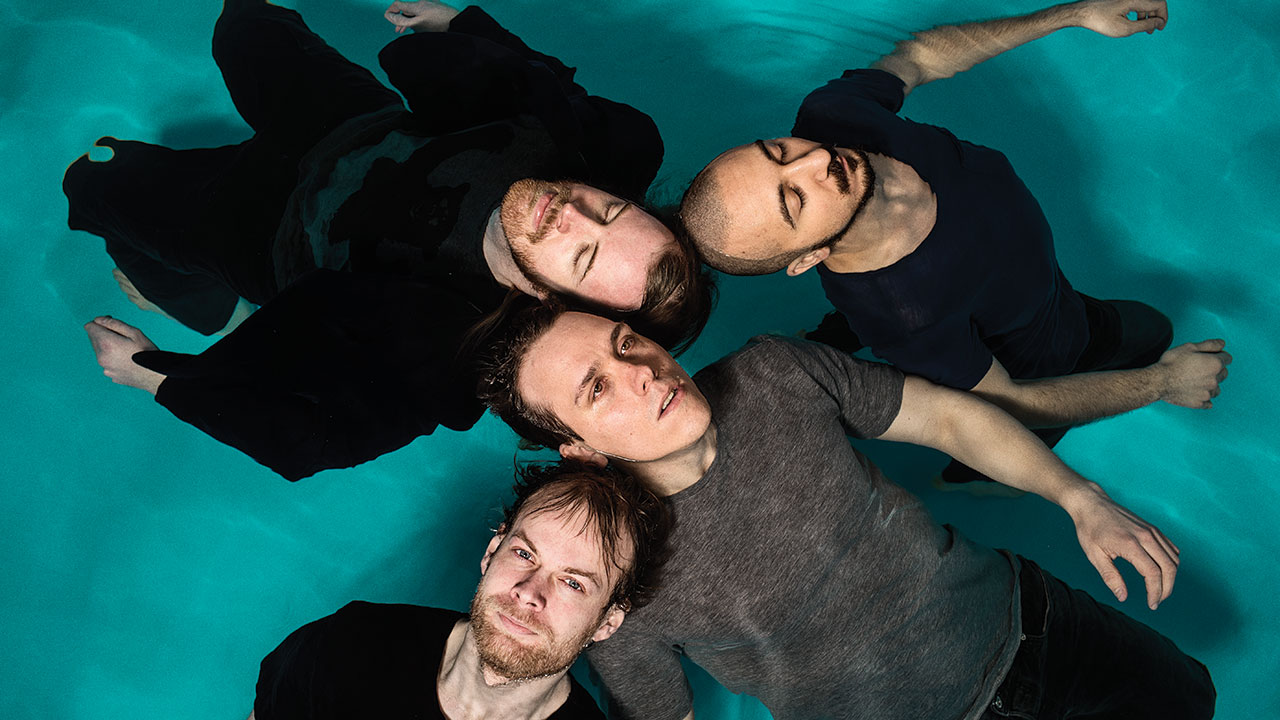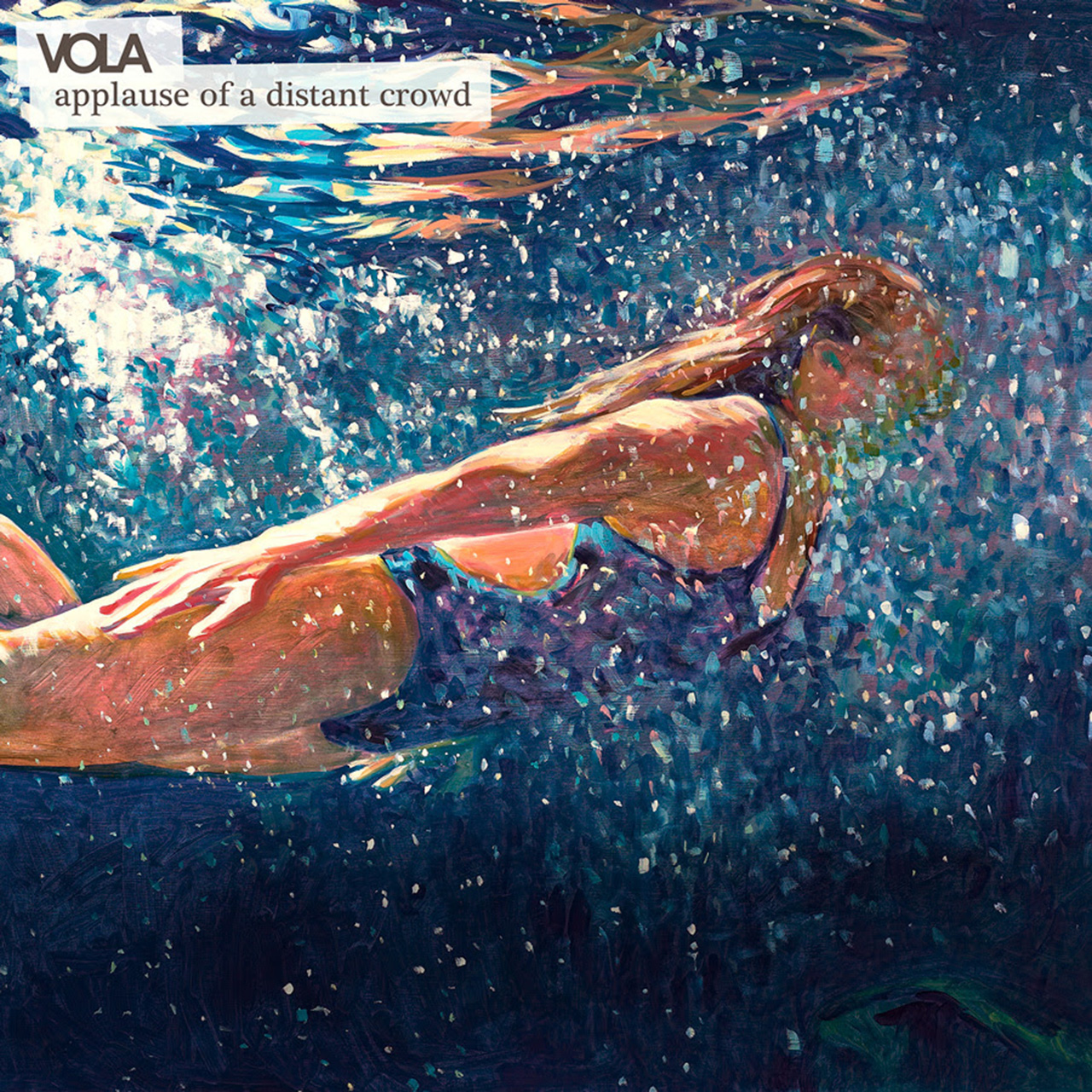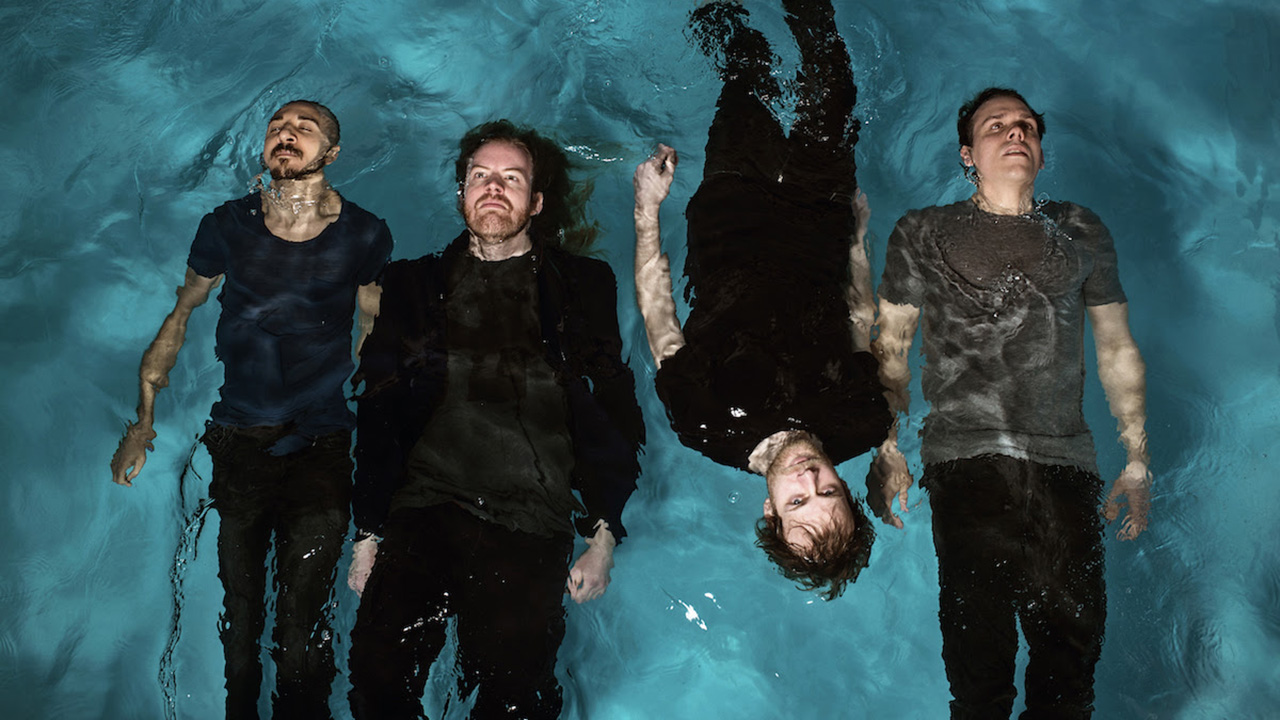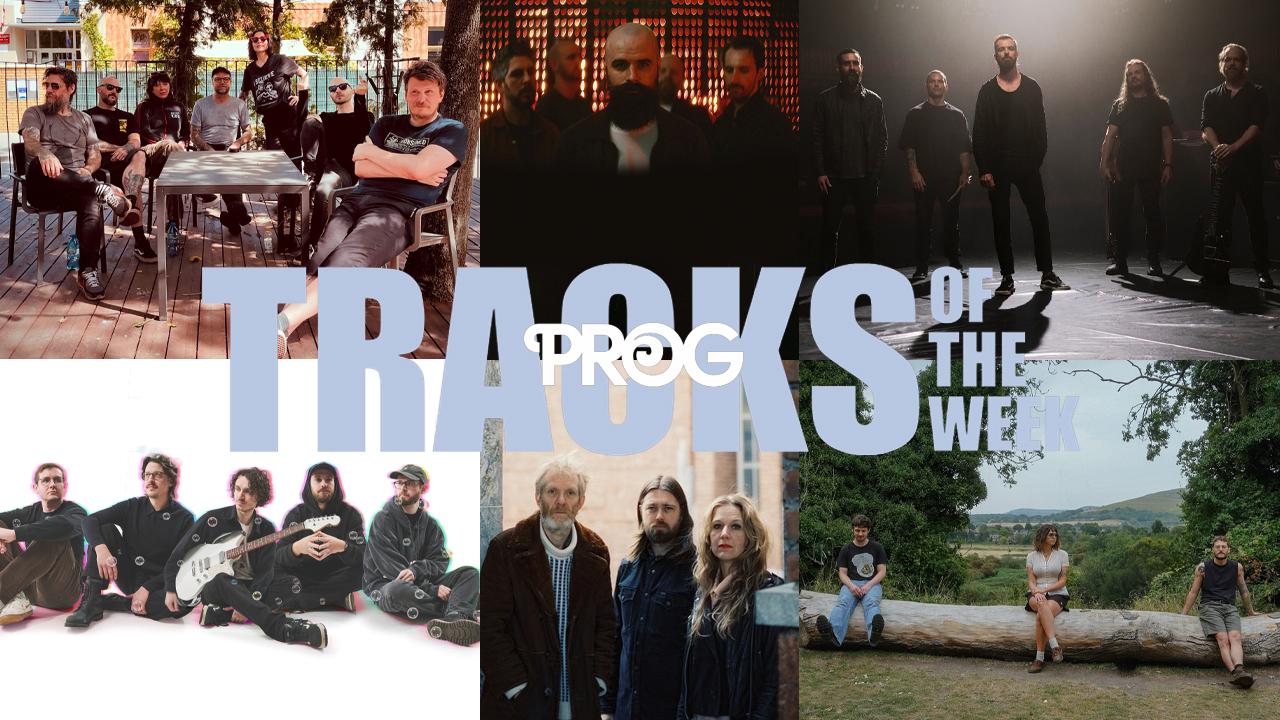“You find a certain sound and you write some songs around the sound, and then you get tired of being there and you move to another place." How VOLA tackled the 'difficult second album' syndrome
After Danish proggers VOLA released their celebrated debut record Inmazes in 2016, the task of following it up was always going to be tricky. Has Applause Of A Distant Crowd swatted away that second album syndrome?

Following the success of their debut album Inmazes, how would Danish/Swedish prog metal quartet VOLA deal with that 'difficult second album'? Prog sat down with singer and guitarist Asger Mygind in 2018 to find out.
VOLA guitarist and vocalist Asger Mygind misses something. Right now it’s not the nostalgic haze of childhood, though, or a lost friendship. Instead, he misses living a life where you don’t have social media catapulting notifications at you all day, and where there’s no subconscious desire to check your mobile phone when you’ve got a few minutes to spare.
“For me there’s a feeling of sometimes just being lost in social media and not being able to find a way back to my own thoughtfulness,” he says down the phone from a library in Copenhagen. “Sometimes I miss the days where you can just sit on a chair and look out the window and not have this urge to check my phone.
“Now we allow ourselves to get interrupted all the time, because we feel there is so much entertainment out there, and it’s really hard not to indulge in all that. I have this fear that it might affect my creativity in the long run, if I lose this thoughtfulness that you can get outside of social media.”
Judging by his band’s new album Applause Of A Distant Crowd, Mygind has nothing to worry about. The Copenhagen quartet’s record is a compelling, vivacious and, yes, very creative and very thoughtful follow-up to their impressive 2016 debut Inmazes, and it’s one that sees the proggers evolve their sound with ease.

The title of the album – which was recorded in Copenhagen in 2017, with much of the work done at Mygind’s home studio – is a nod to social media and how many people try to present themselves in a positive light to ‘friends’ they may never see in real life, and it’s a theme throughout the record.
Social networking and its apparent negative effect on society has quickly become a hot topic, one that is becoming very relatable to billions of screen junkies across the world.
Sign up below to get the latest from Prog, plus exclusive special offers, direct to your inbox!
‘Watch me now, I’m vanishing in the light,’ Mygind’s voice swirls in the dreamy title track. ‘I’ve photographed my latest meal, in black and white, I kept my faith in videos of cats in shoes.’
“It’s sort of the context that most of the songs are placed in,” Mygind says. “They are inspired by observations about how our relationships have changed since social media became a big part of our everyday lives.
“It’s a feeling of being close online but being distant in the real world, if you can call anything the real world. It’s also about how you can reach people who are very far away. We can make music and get feedback from a girl living in Brazil or South Africa, a connection to a distant crowd, and that image is a part of some of the lyrics.”
It’s ironic that the more positive side of social media has no doubt played
a part in getting VOLA get to where they are today: one of modern prog’s most prodigious talents.
The band – completed by keyboard player Martin Werner, bassist Nicolai Mogensen and drummer Adam Janzi – started their journey back in 2006 when Mygind and some friends killed time by jamming out songs by their heroes in his parents’ basement. Back then it was luminaries such as Dream Theater, Opeth and Porcupine Tree that sparked VOLA’s imagination, although trip hoppers Massive Attack also inspired them.
Demos, EPs and some line-up changes followed before Inmazes put the Danes truly on the prog map. Its cover, based on a drawing by artist Anders Thrane, showing a man’s head dissected into black and white lines, was joined by a sound that was just as memorable, with the metallic attack of Meshuggah married with the melodic majesty of Haken or Karnivool.
But this time around, things are a little different. One of the lead singles, Ghosts, shines a bright light on VOLA’s more gentle side, with a floaty keyboard motif allied with soaring vocals. It was largely well-received, but one worried YouTube user wrote that it “feels too generic pop”, while a fan on Facebook lobbed over that dreaded hand grenade of critique: they thought it sounded a little too “Coldplay”.
But VOLA don’t care. It’s part of the plan – a quest to reinvigorate their sound. Doing the same thing twice doesn’t fit into their way of thinking.
“If we had made an Inmazes number two, it would have been a competition between those two albums. I think it would have failed because for the style we used on Inmazes, I don’t think we could better it, really,” Mygind reflects.
“It was that style taken to 800 per cent. It felt necessary to do something different this time and I feel like we’re searching a bit more on this album, to figure out what makes sense for us.
“I think it’s more experimentation really than Inmazes. That felt more like a comfort zone, which I guess was a product of the EP that came before that – Monsters – which went into this more djent-ish sound. Now we’re experimenting a bit more again on this album. Maybe on the next album we’ll be a bit more defined.
“You find a certain sound and you write some songs around the sound, and then you get tired of being there and you move to another place, and during that trip you always make new music, right? I feel like this album is that we’re at this place now, just trying to figure out what we like doing the most at this point in time.”
While VOLA say Inmazes was inspired by angular overlords Meshuggah, Applause Of A Distant Crowd sees them revert back to older influences like Porcupine Tree and Oceansize to mould something more balanced while still keeping some of the djent-speckled punches and groove.
“It felt more fun to go back to some of those bands,” Mygind says. “But I hadn’t actually been listening that much to music prior to this album. I was listening more to podcasts and watching shows like Black Mirror. I think that has maybe been a bigger influence than listening to music.”

While the spectacle of prog acts like Dream Theater were part of Mygind’s upbringing, don’t expect the same level of musical flourishes with VOLA. The nuts and bolts of songwriting are key, although they do have their moments. Alien Shivers, for instance, launches with an artillery fire of distorted riffs snaking around the guitar neck.
“I think we’ve written a good song if it also sounds good on an acoustic guitar, stripped down,” Mygind says. “If that’s possible, then we’ve succeeded. I still enjoy those small technical details, though. I think they add a layer to the listening experience, makes these small nuances unfold when you listen multiple times, which I enjoy a lot as a listener. And there also has to be a level of entertainment playing the songs – it has to be fun. I think having some technicality in there makes it more fun.”
“It’s technical with a purpose,” adds drummer Janzi, who lives in Sweden and has to fly to Denmark for his VOLA work. “As long as it gives something to the song, then it’s just fun. A few songs require something more technical and others don’t. In the end, it’s about what the song needs.”
The smoother sound of Applause Of A Distant Crowd may appeal more to rock fans than djent devotees, with Mygind crediting less gain on the guitars and a more natural drum sound as two ways in which things may be more palatable to the everyday listener.
“I think many people will give it a chance and maybe will end up enjoying it a lot, if they just allow themselves to dive into the album,” he says. “I could see it opening some new doors for us.”
Inmazes had already opened up huge doors for VOLA – the band toured with Katatonia and played festivals like Bloodstock and UK Tech-Fest – but with the new record in tow, it feels like the modern-day proggers are on the cusp of something bigger and better.
“For us it’s just about moving forward and doing it 100 per cent,” Mygind says. “I have no hesitations about where I want to bring this band. I want to go as far as we can, I want to make this my way of living and I want to write better songs than I do now.”
A writer for Prog magazine since 2014, armed with a particular taste for the darker side of rock. The dayjob is local news, so writing about the music on the side keeps things exciting - especially when Chris is based in the wild norths of Scotland. Previous bylines include national newspapers and magazines.

